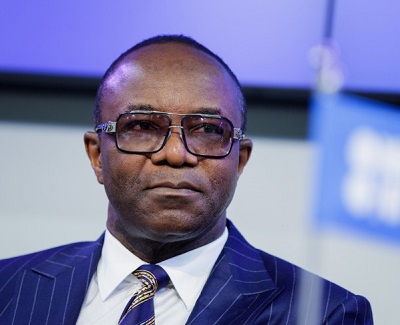Oil Industry’s Share Of Digitization May Hit $1trn By 2025 – SNEPCo
The Managing Director of Shell Nigeria Exploration and Production Company (SNEPCo), Mr. Bayo Ojulari, has disclosed that by 2025, the global oil industry’s share of global digitalization will be over $1 trillion.
Ojulari, stated this in a presentation, ‘Digital Transformation and Emerging Trends in Artificial Intelligence: Implications for the Energy Sector and Future Outlook by 2025’ which he made at the just concluded 2019 edition of the Society for Petroleum Engineers (SPE) Nigeria Annual International Conference and Exhibition (NAICE).
He explained that by then, such tasks as predictive maintenance, remote monitoring and operations, frontline worker mobility, omnichannel retail, consumer energy choices, and digital customer services amongst others, would be executed through digitalisation which would be powered by artificial intelligence (AI) or Machine Learning (MI).
He noted that with digitalisation, companies in the oil industry could benefit from increased business value growth rate, safer operations, improved governance processes, improved operational efficiency, predictability of business operations and financial outlook, as well as integrated and insightful decision-making processes.
According to Ojulari, market analysts have identified digital technologies as a significant safety and environment value contributor, and could with advanced analytics and process optimisation, result to three per cent reduction in accidents and injuries, 350 million tonnes reduction in carbon emissions, 65,000 barrels reduction in pipeline spills, as well as 800 million gallons reduction in water consumption.
Similarly, he noted that digitalisation has resulted in AI Seismic interpretation and well location, automation drilling and robotic inspections and leak detection systems.
He noted that while Nigeria was placed in the ‘break-out’ end of the 2017 digital evolution index map, it could leverage its benefits for its oil industry by ensuring that government, operators and service providers become early adopters of digital systems of operation, consider new business models, cultivate a clear corporate digital strategy beyond proof of concepts, promote culture of innovation and change, as well as engage and collaborate with others in the industry.
According to him, the country and industry would also need to, “keep an eye on data protection and privacy, assurance and certification of data quality, update legislation to support digital Nigeria, and incentivise investment in digital technologies.”
Ojulari, equally called for the promotion of collaboration in the industry through policies, and investment in human capital development.
“Digital and coding should be normal to people, make digital leadership and digital dexterity in people a high priority or retraining workforce for the transformation journey,” he added in his presentation.








